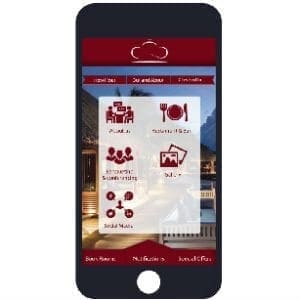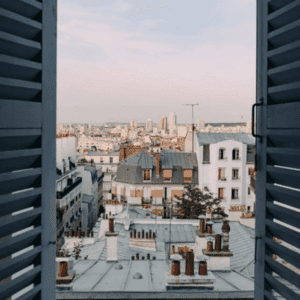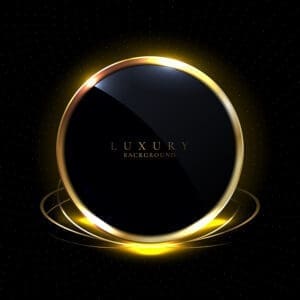 Virtual reality is growing in popularity, and its pervasiveness will only increase in coming years as affordable headsets hit the mainstream market. And although VR has sometimes been seen as just a toy for video gamers, its practical applications are catching the eye of businesses around the world.
Virtual reality is growing in popularity, and its pervasiveness will only increase in coming years as affordable headsets hit the mainstream market. And although VR has sometimes been seen as just a toy for video gamers, its practical applications are catching the eye of businesses around the world.
While hoteliers like Marriott are already leveraging the tech to fill beds, VR has potential beyond single travelers; it can also be an effective tool to market event spaces.
How hotels use VR
Currently, hotels are using VR to provide potential guests with a vivid experiences of their properties and travel destinations. Leading the charge in this front is Marriott, which last year created a VR experience that allowed users to walk a Hawaiian beach or climb London’s Tower 42.
Marriott, however, isn’t alone. Recently, Shangri-La Hotels rolled out VR experiences of its hotels, as did New York City’s Ludlow Hotel. Both Shangri-La and Ludlow created 360-degree videos that can be viewed in browsers and on leading VR headsets.
Steven Taylor, Shangri-La’s chief marketing officer, said that his company started to utilize VR because “virtual reality is on the cusp of transforming the way we do business.”
Taylor added: “The virtual reality videos are essentially a 2-minute tour, but these can actually be split into mini experiences that showcase the destination, that showcase our guest rooms, that showcase the restaurants. I think the opportunities here are quite literally endless.”
Hotels and event planners
One of those endless opportunities is using VR to reach event planners. Like potential guests, event planners also want—and need—to know what a location looks like in order to help guide their clients to the most appropriate booking.
So, what would this look like? Event planners have long been skeptical of a location’s online images, as they can be easily manipulated to appear larger and more refined than they are in reality.
“You never really know a space until you are standing in it,” said Annette Naif, head of Forte Events NYC. “With a picture you can make something look so good, but when you actually walk into a space it could be really run down. When a picture is crystal clear, I’m concerned.”
Naif said the search for a suitable space for her out-of-state client begins with a web search; when an on-site visit is impractical for each potential location, a virtual tour distinguishes a hotel’s space from the competition.
If this is true for virtual tours, imagine what would happen if event planners felt as if they were physically transported into a space through virtual reality.
What the future holds
Although it’s difficult to predict exactly what new uses will emerge for virtual reality in the coming years, it’s a safe bet that at some point, many people will be carrying around VR capability in their pockets.
“Head mounted displays are about to really hit the mainstream,” SapientNitro Global Initiative Lead Adrian Slobin recently told Ad Age. “They’re going to get cheaper. They’re going to be given away with cell phone contracts. It will pretty soon just be one more piece of gear in your life.”
And now that the words “trending” and “hashtag” are part of our regular marketing vocabulary, crowd-sourced VR interaction in your event spaces could also be on the horizon.
Conference attendees, particularly younger guests, are looking for something interactive, and real-time. Helping event planners to design a more interactive experience could mean that along with an Instagram stream full of static images, your event space will be displayed on social media via short VR clips.
From a more polished perspective, virtual reality could allow a larger audience to “attend” events hosted in your space. Hoteliers who make the investment of supporting 3-D streaming, 360-degree cameras in their event space could enable bookers to reach larger audiences with their events, making your space more attractive in the process.
Whether you’re providing a better way for event planners to evaluate your space ahead of time, or turning the tech into an additional feature of the venue, virtual reality can be a valuable tool to increase event bookings in your space. And as it is adopted by the mainstream culture in coming years, new and clever uses for VR will also emerge. Knowing its capabilities and future potential will give tech-savvy hoteliers a leg-up on the late adopters.
About the author
 Abi Mandelbaum is co-founder and CEO of YouVisit, the only fully integrated platform for creating, distributing, and monetizing virtual reality and other immersive experiences across all devices, including headsets, mobile, and desktop. YouVisit has worked with thousands of businesses and institutions such as Hewlett Packard, Microsoft, Carnival, Yale, Zumba, and New York’s Central Park.
Abi Mandelbaum is co-founder and CEO of YouVisit, the only fully integrated platform for creating, distributing, and monetizing virtual reality and other immersive experiences across all devices, including headsets, mobile, and desktop. YouVisit has worked with thousands of businesses and institutions such as Hewlett Packard, Microsoft, Carnival, Yale, Zumba, and New York’s Central Park.



















